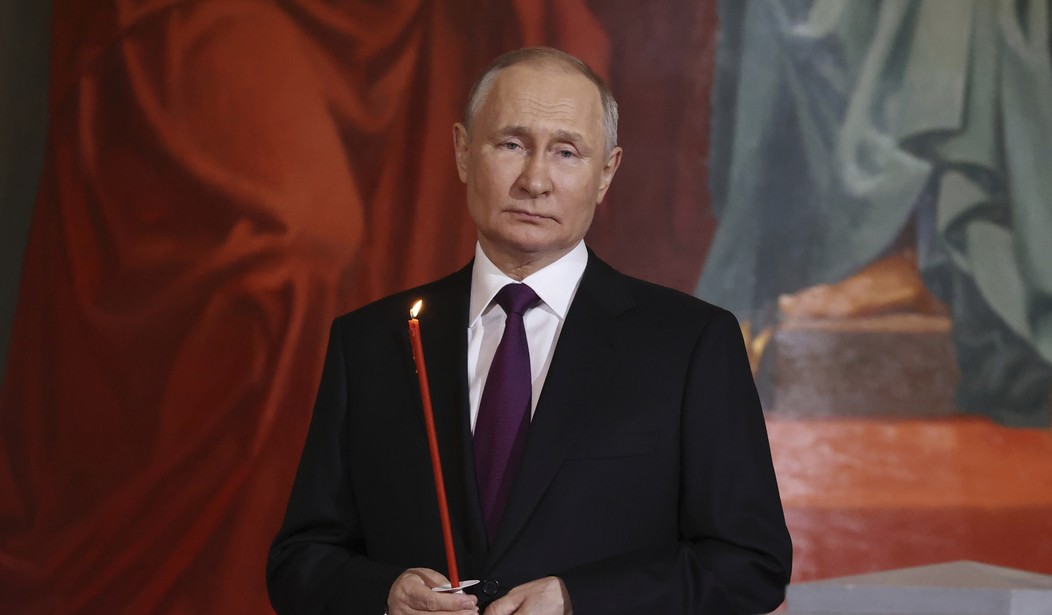Ukrainian President Volodymyr Zelenski has had a very full dance card over the past few days, including telling reporters in Washington that he insists his country should be able to use long-range strategic missiles from the United States and other allies to strike deep into Russian territory. He also reiterated his plans to share his "victory plan" for the war against Russia with Joe Biden in the very near future. For his part, Joe Biden has remained noncommittal toward the idea, despite suggesting that the United States and our allies could be doing more than we have been already to stave off the Russian invasion making further progress. Vladimir Putin quickly caught wind of these discussions and made a very public announcement that any use of allied long-range missiles against the Russian heartland would result in a situation where "Russia would be at war with the United States and its allies." This is one of the most direct and dire statements that Putin has made to date, and it further fortifies Putin's claim to have certain "red lines" that must not be crossed unless the West wants this war to escalate dramatically. But is Biden listening? (NBC News)
President Vladimir Putin has warned that Russia would be “at war” with the United States and its allies if they lift restrictions on Ukraine's use of long-range Western weapons.
Putin's vow to follow such a move with “appropriate decisions” was his latest, perhaps most drastic attempt to draw red lines over NATO members' backing for Kyiv, and it came on the eve of a meeting in Washington where the issue is expected to be high on the agenda.
British Prime Minister Keir Starmer held talks with President Joe Biden at the White House on Friday afternoon, as London clashed with Moscow over the expulsion of six diplomats accused of spying — accusations the U.K. dismissed as "baseless."
As noted above, the British Prime Minister met briefly with Joe Biden in Washington on Friday (one of the few times anything has shown up on Biden's calendar in weeks), discussing the allies' response to the Kremlin ejecting six British diplomats from Russia this week amid allegations of spying. Biden certainly sounds as if he's taking Zelenski's demands seriously, but Putin sounds fairly serious himself.
During more "normal" times - assuming anyone can still remember those - we might be tempted to suspect that the President of the United States is playing some sort of three-dimensional chess, seeking an advantage over Putin as the war of words plays out in the international media. Sadly, we have long since left "normal" in our rearview mirror and therein lies the significant threat of having a Commander-in-Chief who is probably barely able to play two-dimensional checkers at this point. Too many independent analysts have concluded that Putin is no longer as mentally stable as he was during his rise to power. It would be very easy indeed for a slip of the tongue to trigger a potentially catastrophic situation. We clearly need to maintain a tough stance toward Moscow, but the possibility that Mad Vlad is completely serious about his "red lines" can't be ignored.
Just this week, Foreign Policy Magazine wrote that Joe Biden's "escalation management" strategy in Ukraine "makes the West less safe." The finger of blame isn't being pointed solely at Joe Biden, but rather an ongoing pattern showing that the United States likes to keep wars started by other nations small, but not move in an overly ambitious fashion to end them. That strategy is beyond problematic when one of the primary actors involved appears to be subject to chaotic outbursts and policies that shift on the fly.
A pattern has emerged of purely political hesitations by the White House, notably regarding the long delays prior to authorizing deliveries of longer-range missiles and combat aircraft as well as the current blockage on any use of Western weapons against military targets and related infrastructure deep within Russia. The volume of military aid has also slowed markedly, with $6 billion of the $7.8 billion approved by the U.S. Congress in April still unused and about to expire on Sept. 30.
Taken together, these policy choices define the White House’s escalation management approach. To keep the war small, Washington has placed a very tight leash on Kyiv’s prosecution of the war.
Unfortunately for us, Putin has a wide variety of options available to him. He doesn't need to attempt an intercontinental missile launch across the Atlantic to strike New York or Washington and he's obviously well aware of this. All he really needs to do is hit Paris or London or Rome and the United States would be at war with Russia by default. Nuking any NATO capitals would spell the end of Russia, to be sure. But it wouldn't happen overnight and the carnage that would no doubt pile up would be legendary. Is Vladimir Putin really willing to "go there?" If you'd asked me ten years ago, I would have said no. Today... I'm not so sure anymore.








Join the conversation as a VIP Member